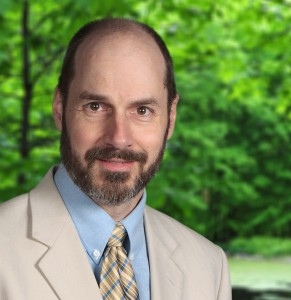This is the third in a series of candidate profiles written by students in Instructor Jeff Browne’s CU News Corps course at CU-Boulder. Lars Gesing is a graduate student from Hamburg, Germany, where he worked for several print and online publications, including the daily regional newspaper Hamburger Abendblatt.
Jonathan Dings is a couple of minutes late. “Sorry, the bus wasn’t on time,” he explains ruefully.
In his first run for City Council, Dings works hard to personify his campaign goals. Strongly promoting a more distinct look on transportation issues, he often uses his own EcoPass to get to work—and to interview appointments.
Dings firmly believes that introducing a community-wide EcoPass will have multiple favorable outcomes for Boulderites. “Having an EcoPass means having options,” he argues.
The father of two is a passionate cyclist, who bikes to work on a regular basis. The EcoPass is an important back-up for him as a bicyclist but he often has to rely on his car. He says a city-wide EcoPass would increase the overall ridership of buses and reduce greenhouse gas emissions, thereby making the case for having even more bus routes in the city. This effect, Dings explains, would be most important for those areas “where bus service isn’t as good as it is in other parts of the city.”
As soon as Jonathan and his wife Lisa Dings moved to Boulder 15 years ago, he started working for the Boulder Valley School District. He then consistently worked his way up toward his current position, chief of planning and assessment.
“I bring in analysis and tend to ask questions that are related to data,” says Dings, who has a doctorate in educational measurement and statistics, pointing to his “different background than the one most other City Council members have.”
Raised near Buffalo, N. Y., Dings went to a small liberal arts college where he didn’t just study for a degree. Young Jonathan also discovered his passion for music, playing the guitar and singing in what he remembers today as a “mild punk rock band.” Over the years, his taste in music slightly shifted—more toward bluegrass and jazz. But his love for playing the guitar never faded.
Earning a master’s degree in higher education, cognitive development and psychological counseling, and living abroad in Mexico for one year at the age of seven and for a summer in Germany while a high school student all helped Dings polish his “appreciation of how living in America is an advantage in so many ways.”
Those were the days that laid the foundation for his compulsion to get involved in community work.
The fight over how and if to increase density within the city affects Dings’s campaign agenda as much as that of any candidate. He advocates slow growth and prefers to focus on “maintaining the quality of life that we have here,” adding that “with the outdoors being a critical part of Boulder, we are essentially limited to developing here in Boulder.”
Making neighborhoods much denser would limit the resources available to make major changes to new development areas, Dings explains. He doesn’t support adding density to existing neighborhoods but would much rather prefer to focus on the improvement of underdeveloped areas.
Though he can’t help but admit that Boulder has a housing shortage, he nevertheless says: “What I would focus on more than housing is transit. I want to make sure we have good ways of getting people who are here to study or work into Boulder.”
Former city council member Crystal Gray sees challenges surfacing during the implementation of these plans. She suggests: “Providing a city wide EcoPass and expanding that to in-commuters would take a financing mechanism such as a head tax—which Denver has.”
This approach might well cost Dings votes from members of the city’s business community though.
John Tayer, president and CEO of the Boulder Chamber of Commerce, says that while his organization is a strong supporter of regional transit investment—which reflects Dings’ proposal —“we also believe that increased workforce housing will provide more opportunities for employees to live and work in Boulder, thus avoiding a burdensome daily commute.”
Ray Bridge, on the other hand, favors Dings’s ideas on the density debate. The co-chair of PLAN-Boulder County, an organization fighting for environmental sustainability, argues: “Preserving our open space and limiting city growth are policies that Boulder citizens initiated and value highly. They make Boulder a desirable place to live, and that results in high land values and housing prices.”
Dings reasons that to maintain diversity in the city, affordable housing would be more readily and effectively placed into new development areas rather than “retrofitted into existing neighborhoods.”
Boulder’s most immediate challenge though is to rebuild after the flood, a process during which “the city might face some budget challenges,” he says.
Tina Marquis worked with Dings on the BVSD District Accountability Committee for the last three years. She is convinced that her colleague’s campaign might benefit from the most recent events. “As the council addresses the very large issues of how to rebuild after the flood and whether or not to municipalize, it will be critical that someone with Jonathan’s ability to analyze data and create processes to evaluate options be on the council.”
Former council member Crystal Gray adds: “Jonathan’s campaign goals are very much in line with good planning principles and the direction that Boulder has taken to make it a desirable community.”
Who wouldn’t sacrifice a couple of minutes of wait for that?



